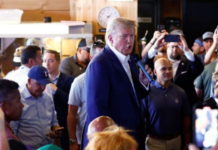
After China’s top diplomat, Yang Jiechi, lectured his U.S. counterparts on America’s moral failings, including police killings of Black citizens, during bilateral talks in March, national security adviser Jake Sullivan didn’t exactly argue with him. But he reminded Yang of what he called the “secret sauce” of U.S. governance: the ability to acknowledge and fix mistakes. “A confident country,” Sullivan said, “is able to look hard at its shortcomings and constantly seek to improve.” His implication, of course, was that at least in international relations China can seem unable to do the same.
As the world’s most populous nation adopts a more aggressive posture, that view is becoming widely shared. China’s growing power has coincided with a drastic deterioration in public perceptions abroad. Surveys last year by the Pew Research Center found that, in 9 of 14 major economies, negative opinions of the country had reached their highest level since Pew began polling the question more than a decade ago. In the U.S., a full 73% of respondents reported a “very unfavorable” or “somewhat unfavorable” impression of China.
Some of the causes are obvious. In recent years, China has faced a barrage of international criticism, targeting its apparent detention of more than 1 million Muslims in “re-education” camps, the crushing of dissent in Hong Kong, and its actions at the beginning of the coronavirus pandemic, among many other issues. Its industrial policy is another factor: Many workers in the north of England or the U.S. Midwest blame China, fairly or not, for the loss of their jobs.
But increasingly, it’s China’s diplomats who are doing the most damage to how the country is viewed. Popularly known as “Wolf Warriors,” after a series of blockbuster movies that depicted Chinese heroes vanquishing foreign foes, they have picked fights everywhere from Brazil to Papua New Guinea.












